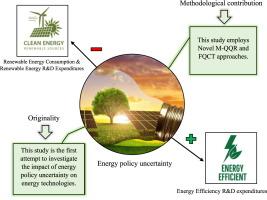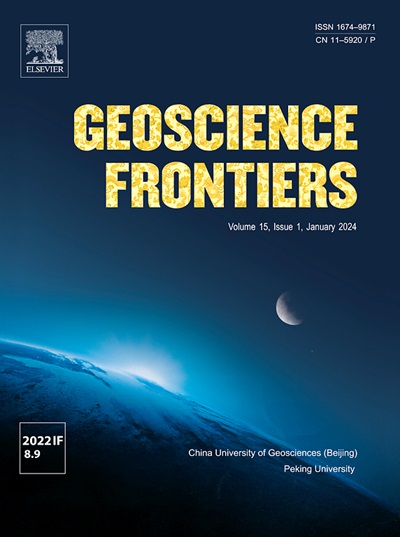Does energy policy uncertainty matter for renewable energy and energy efficiency technologies? An affordable and clean energy perspective
IF 8.5
1区 地球科学
Q1 GEOSCIENCES, MULTIDISCIPLINARY
引用次数: 0
Abstract
Uncertainty can affect both macroeconomic indicators and the environment. Countries are implementing various energy policies to combat global warming, but these policies contain some uncertainties and contradictions. The environmental impact of uncertainties in energy policies is a research topic that has just begun to be investigated by researchers. This study examines the effects of energy policy uncertainty (ENERPU) on renewable energy R&D (RR&D), energy efficiency R&D (EER&D) and renewable energy consumption in the four countries with the highest RR&D expenditures (USA, Germany, Japan, and Spain). The study uses the novel multivariate quantile-on-quantile (M-QQR) approach from 2003m1 to 2022m9. The results of the study show: (i) The impact of ENERPU varies by quantile and country. (ii) ENERPU causes a decrease in renewable energy consumption and hinders RR&D expenditures. (iii) ENERPU increases EER&D. The Fourier quantile causality test confirms the robustness of the empirical results. Based on these findings, policymakers are recommended to minimize ENERPU and implement stable energy policies to develop the renewable energy sector and technologies.

能源政策的不确定性对可再生能源和能源效率技术有影响吗?从负担得起的清洁能源角度看问题
不确定性既会影响宏观经济指标,也会影响环境。为了应对全球变暖,各国都在实施各种能源政策,但这些政策都存在一些不确定性和矛盾。能源政策的不确定性对环境的影响是研究人员刚刚开始研究的一个课题。本研究探讨了能源政策不确定性(ENERPU)对可再生能源研发(RR&D)、能源效率研发(EER&D)和可再生能源消费的影响,研究对象是 RR&D 支出最高的四个国家(美国、德国、日本和西班牙)。该研究采用了新颖的多变量质对质(M-QQR)方法,时间跨度为 2003m1 至 2022m9。研究结果表明:(i) ENERPU 的影响因量值和国家而异。(ii) ENERPU 导致可再生能源消费减少,阻碍了 RR&D 的支出。(iii) ENERPU 增加了 EER&D。傅立叶量子因果检验证实了实证结果的稳健性。基于这些结论,建议决策者尽量减少 ENERPU,并实施稳定的能源政策,以发展可再生能源行业和技术。
本文章由计算机程序翻译,如有差异,请以英文原文为准。
求助全文
约1分钟内获得全文
求助全文
来源期刊

Geoscience frontiers
Earth and Planetary Sciences-General Earth and Planetary Sciences
CiteScore
17.80
自引率
3.40%
发文量
147
审稿时长
35 days
期刊介绍:
Geoscience Frontiers (GSF) is the Journal of China University of Geosciences (Beijing) and Peking University. It publishes peer-reviewed research articles and reviews in interdisciplinary fields of Earth and Planetary Sciences. GSF covers various research areas including petrology and geochemistry, lithospheric architecture and mantle dynamics, global tectonics, economic geology and fuel exploration, geophysics, stratigraphy and paleontology, environmental and engineering geology, astrogeology, and the nexus of resources-energy-emissions-climate under Sustainable Development Goals. The journal aims to bridge innovative, provocative, and challenging concepts and models in these fields, providing insights on correlations and evolution.
 求助内容:
求助内容: 应助结果提醒方式:
应助结果提醒方式:


